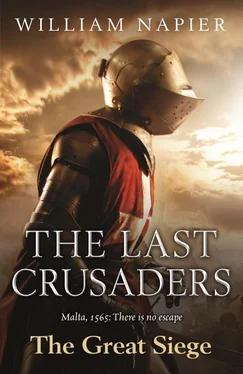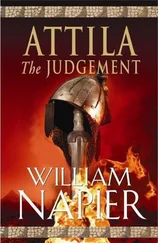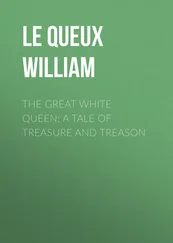William Napier - The Great Siege
Здесь есть возможность читать онлайн «William Napier - The Great Siege» весь текст электронной книги совершенно бесплатно (целиком полную версию без сокращений). В некоторых случаях можно слушать аудио, скачать через торрент в формате fb2 и присутствует краткое содержание. Жанр: Исторические приключения, на английском языке. Описание произведения, (предисловие) а так же отзывы посетителей доступны на портале библиотеки ЛибКат.
- Название:The Great Siege
- Автор:
- Жанр:
- Год:неизвестен
- ISBN:нет данных
- Рейтинг книги:5 / 5. Голосов: 1
-
Избранное:Добавить в избранное
- Отзывы:
-
Ваша оценка:
- 100
- 1
- 2
- 3
- 4
- 5
The Great Siege: краткое содержание, описание и аннотация
Предлагаем к чтению аннотацию, описание, краткое содержание или предисловие (зависит от того, что написал сам автор книги «The Great Siege»). Если вы не нашли необходимую информацию о книге — напишите в комментариях, мы постараемся отыскать её.
The Great Siege — читать онлайн бесплатно полную книгу (весь текст) целиком
Ниже представлен текст книги, разбитый по страницам. Система сохранения места последней прочитанной страницы, позволяет с удобством читать онлайн бесплатно книгу «The Great Siege», без необходимости каждый раз заново искать на чём Вы остановились. Поставьте закладку, и сможете в любой момент перейти на страницу, на которой закончили чтение.
Интервал:
Закладка:
By heaven, the Grand Master was a tyrant worse than Nero. But he was magnificent.
‘Now, Marshal,’ said La Valette, ‘you ask what has happened. Can you climb with me to the walls?’
‘What’s left of them.’
‘What’s left of them.’ La Valette nodded. ‘Or can you lean on the boy?’
‘The boy will collapse. Won’t you, boy?’
‘I …’ stammered Nicholas, struck like all the others there with a fatigue like death. ‘I … I’m not sure-’
‘Allow me, Marshal,’ said Smith, so slathered in blood that barely a gleam of armour showed. ‘Lean on me. I have looked from the walls already. It is a fine sight.’
‘Who has come?’ said Stanley. ‘Smith? How do you know?’
‘ Counsel is mine, and sound wisdom ,’ said Smith unhelpfully.
‘The relief?’ said Copier. He looked around with wild hope. ‘Spain has come?’
‘Not Spain,’ said La Valette. ‘Come and see.’
They leaned on what remained of the walls beside the shattered post of Auvergne. The neighbouring post of Provence, walls and bastion both, were virtually flattened. The Turks could have marched in two hundred abreast. But as La Valette knew, though had passed on to none, everything was against them. Their numbers, once forty thousand strong, were less than twenty, perhaps fifteen. Before Elmo and then Birgu, half of them had died. Another five thousand or more were sick of dysentery and camp fever, sick unto death. He had smelled the foul taint of it on the air across the harbour, two weeks ago now, and seen them burning blankets in desperation. Birgu, meanwhile, had been kept free of any outbreak of crippling disease by the most stringest rules governing wells and fountains, hygiene and sewage. The moment any well or fountain was ruptured by cannonball, it was declared unsafe to use and blocked off. The people had to work harder, walk further each day for their water. But no disease had come on them. And La Valette knew of old that it was plague and pestilence that killed, more than any war.
The Ottoman food and powder supplies were almost gone too. He had noticed days ago that the guns were firing less often. They could no longer afford it. Despite that vast armada that had sailed down the Bosphorus four long months ago, carrying an unimaginable tonnage of provisions and military materials, it was close to exhausted. They might have hoped to be resupplied from North Africa by Dragut. But Dragut was dead. And another mighty supply ship, desperately needed, had been sunk by the blessed Chevalier Romegas, wolf of the Inland Sea.
The Grand Master and his Marshal and knights looked out across the stricken tableland. The main camp of the Ottomans at the head of Marsa was ablaze. Hugely ablaze.
‘Who-’ muttered Copier.
‘Malta,’ said La Valette, ‘Malta herself has saved us.’
9
As soon as La Valette had heard of the death of Don Federique de Toledo, he had sent news to his uncle Don García in Sicily with all speed. No reply came. He had then sent out as many of his knights as he could spare to Mdina under cover of darkness, a troop of fifty mounted men under the command of the redoubtable Don Pedro Mezquita, to remain at Mdina in its defence.
‘At Mdina!’ Mezquita had protested, thirsting for vengeance for the death of his own nephew.
‘You must bring the Maltese nobility in Mdina to battle,’ said La Valette. ‘And observe how the camp of the Turks at Marsa will be ever less and less defended, as the siege wears on.’
And so Mezquita and his horsemen had harried the Turks relentlessly from Mdina. At first the Maltese nobility ordered him to cease, but by then it was too late. The Turks were marching on Mdina in punitive mood, knowing it was only thinly defended.
The nobility panicked and begged for Mezquita’s advice.
‘My advice,’ he said grandly, tossing back his cloak with his still-bandaged arm and assuming his haughtiest air, ‘is that you appoint me Military Commander of this city. Otherwise you are doomed.’
They agreed.
Don Pedro had the men and women of the ancient capital of the island dressed as soldiers, bearing pikes and lining the walls when the Turks came in sight. A crude and laughable ruse, but it worked. Bewildered at the large number of defenders, the Turks backed off. Mezquita told his anxious hosts that they would return. This was not a battle they could leave to Birgu. This was a battle for the whole of Malta. Indeed, for the whole of Christendom. The older nobles still hesitated, but hot-blooded younger sons begged to join Mezquita’s cavalry and ride out against the Turk.
Finally Mezquita could command a hundred and twenty horseman. A small force against an Ottoman army, true. But it could move fast, and must suffice.
It was La Valette’s desperate, last-ditch ruse. To fool the Turks, even in their moment of victory, that a mighty Spanish army had arrived.
Mezquita and his cavalry troop rode out in the thick summer mist before dawn, passing silently through the humid night. The horses snorting softly, muffled with cloths, the men not talking. And keeping watch from an outcrop of rocks, they saw the last titanic bombardment of Birgu begin, and the entire Turkish infantry move out from Marsa to the forward camp for the final assault.
Once battle was joined there, Mezquita and his cavalry galloped in behind and descended on the main camp like a whirlwind. They took no prisoners. They slaughtered all the sick and wounded that they found, they fired the tents and the magnificent pavilions, even the pavilion of Mustafa Pasha himself, they ruptured the water butts and burnt the last of any supplies remaining. In less than a quarter of an hour they had wreaked utter devastation, and were galloping back to the safety of Mdina even as Mustafa and his commanders looked over their shoulders towards Marsa, vaguely uneasy, to see black smoke roiling high into the sky.
Not a Turk had seen the horsemen come in secret from Mdina, and so they thought there was only one explanation.
‘The Spanish have come, and fallen on us from behind!’
The battle-horns sounded the retreat, and Mustafa ground his teeth and almost wept as Birgu was abandoned at the hour of its fall.
The Turks broke camp and pulled apart or burnt their gun emplacements and, utterly broken in spirit, began the trek north to their ships. Wooden wheels grinding over the stony implacable landscape, past ransacked and ruined villages, the sky hotly burning, shame on their sunburnt cheeks.
Outriders kept lookout for the imagined Spanish army, but saw none. The camp appeared to have been attacked by djinns. Some said among themselves that they no longer had enough food to keep them alive on the three-week voyage home.
As they retreated they looked back and saw with crushing dismay that a triumphant banner of St John was once more flying … over St Elmo. A mere patch of cindered rubble on the end of Sciberras.
One Turk shook his head. ‘Against such men as these,’ he said, ‘there could have been no victory.’
A strange and unseasonal wind was picking up from the north, a tramontana , they said, bringing a thin scattering of rain and turning the thin earth of the island to mud. The guns were twice as heavy to haul, the oxen emaciated for lack of fodder. There were more heavy and ominous clouds to the east: the way home looked rougher each day. The rain came down harder on their sodden backs, their hanging silks, and their muskets were now useless if they should need them.
The news that it wasn’t the Spaniards did not bring them to life again. The bitter truth — that their camp had been sacked by only a hundred horsemen or so, riding from Mdina — was even harder to bear. They hung their heads along with their horses and oxen, humiliated to defeat and beyond. Allah had turned against them, and so all was hopeless.
Читать дальшеИнтервал:
Закладка:
Похожие книги на «The Great Siege»
Представляем Вашему вниманию похожие книги на «The Great Siege» списком для выбора. Мы отобрали схожую по названию и смыслу литературу в надежде предоставить читателям больше вариантов отыскать новые, интересные, ещё непрочитанные произведения.
Обсуждение, отзывы о книге «The Great Siege» и просто собственные мнения читателей. Оставьте ваши комментарии, напишите, что Вы думаете о произведении, его смысле или главных героях. Укажите что конкретно понравилось, а что нет, и почему Вы так считаете.












